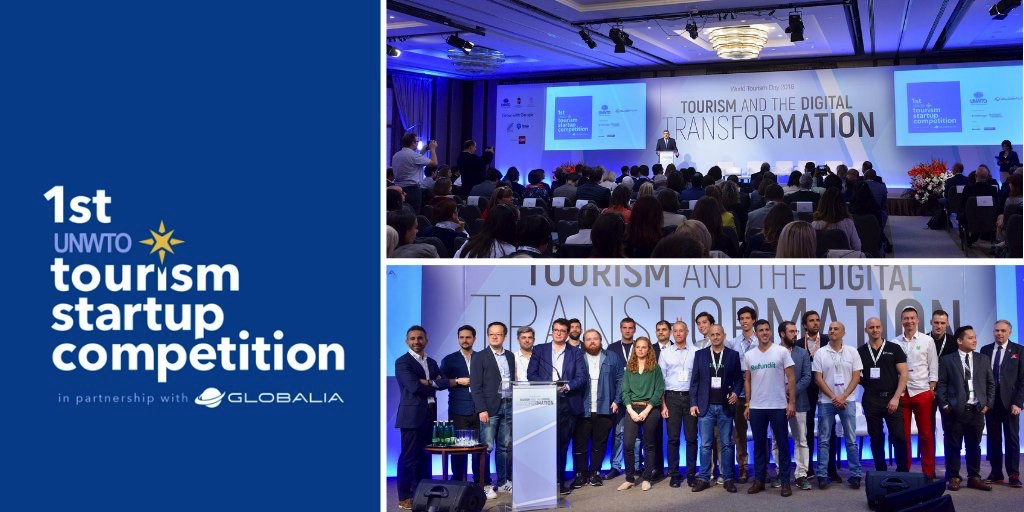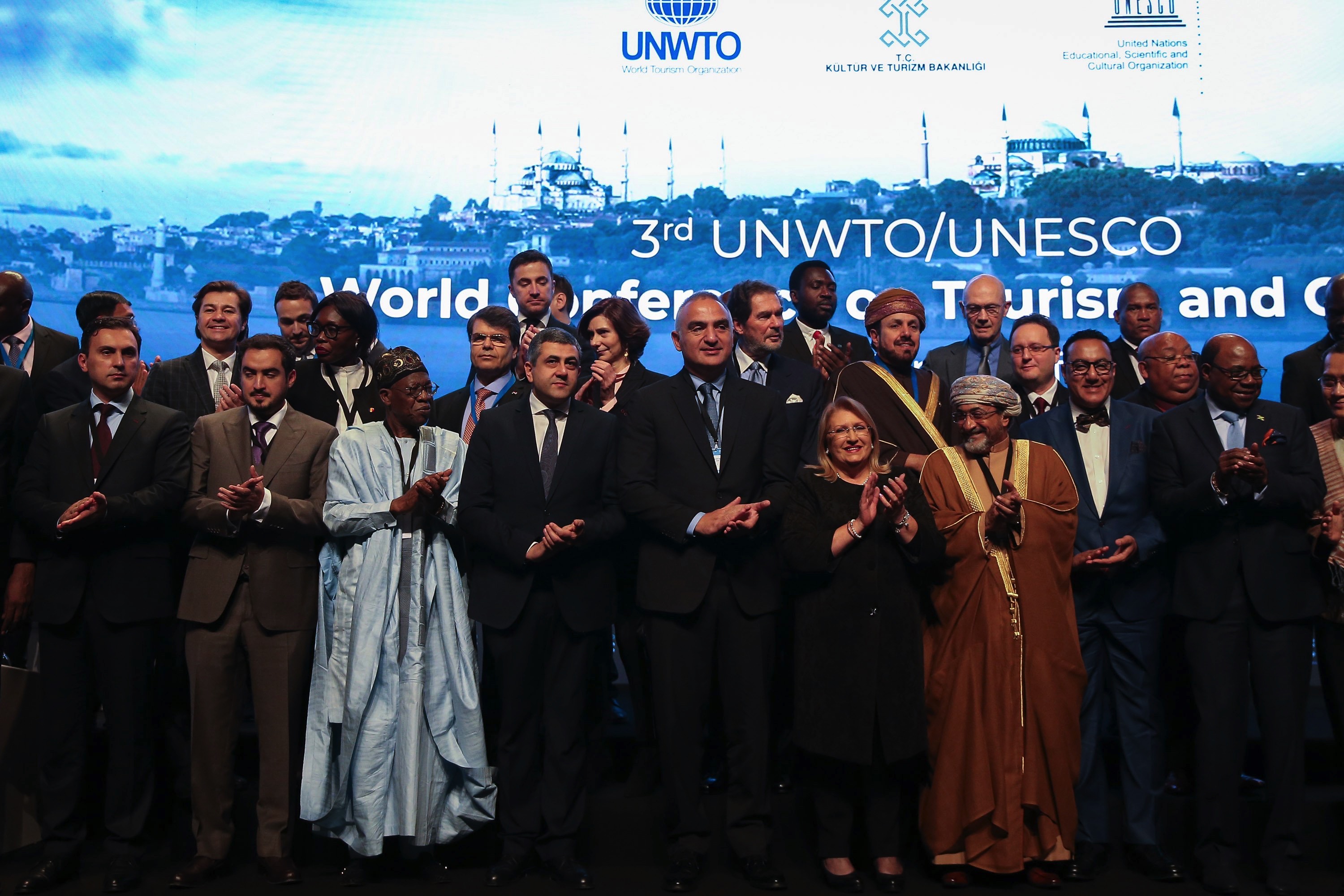

UN Climate Change and WTTC highlight role of travel and tourism in attaining a carbon neutral world by 2050
The World Travel & Tourism Council (WTTC) and UN Climate Change today showcased how the travel and tourism sector can take steps towards carbon neutrality by 2050.
In April, WTTC, which represents the global private sector of travel and tourism, announced the agreement of a common agenda with UN Climate Change, an international treaty which aims for the stabilisation of greenhouse gas concentrations in the atmosphere, paving the way for Travel & Tourism to engage more effectively in the delivery of global goals around climate change.
Today at the UN Climate Conference (COP24) in Katowice, Poland, during the first Travel & Tourism event ever held at the annual COP, both organisations addressed the links between Travel & Tourism and climate change and presented a pathway for the sector to achieve carbon neutrality by 2050.
Speaking ahead of the event at COP24, Gloria Guevara, President and CEO, WTTC, said: “Travel and tourism has an important role to play around the world in economic development, presently accounting for 10.4% of global GDP and supporting 1 in 10 of all jobs, which is more than comparative sectors, such as automotive, chemicals manufacturing, banking and financial services.
“Given our sector’s contribution to social and economic development, it is important that Travel & Tourism plays its part in the drive towards climate neutrality, under the auspices of the UN Climate Change body,” said Ms. Guevara.
“Today, we are announcing that we will continue to work with UN Climate Change to highlight to consumers the positive contribution Travel & Tourism can make to building climate resilience; the establishment of an industry recognition scheme; and the creation of an annual “State of the Climate” event and report to evaluate, monitor and share progress towards climate neutrality. As a major world sector, Travel & Tourism stands ready to play its part in this bright future.”
UN Climate Change Executive Secretary Patricia Espinosa encourages the Travel & Tourism sector to find new, innovative and sustainable ways to reduce its carbon footprint. “On a basic level, doing so is simply a question of survival,” said Ms. Espinosa. “But on another level, it’s about capturing opportunity. It’s about transforming your businesses to be part of a global economic shift—one marked by sustainable growth and powered by renewable energy.”
“We are already experiencing the impacts of climate change in Fiji and in the rest of our Pacific Island countries,” said High-Level Climate Champion H.E. Inia Seruiratu, Fiji’s Minister for Defence and National Security.
“The Travel & Tourism sector is a major revenue earner for our country. Unfortunately, the attractions that drive this sector – our reefs, sandy beaches, clear seas, and forest biodiversity – are under threat from the impacts of climate change. Innovative financing where the Travel & Tourism sector can support our small island economies to respond to these threats is needed and I am very encouraged that the sector is eager to engage in such initiatives and strengthen public-private partnerships in the fight against climate change.”

SUNx & Ingle International Announce SDG-17 Climate Resilience Partnership
A Climate Resilience partnership, focussed on creating 100,000 Strong Climate Champions by 2030 was announced today at COP 24 in Katowice, Poland.
The partnership, which was made in the spirit of SDG-17, is between leading Canadian-based global travel risk management and travel insurance provider Ingle International Inc., and SUNx (Strong Universal Network), which focusses on Climate Friendly Travel. The partnership is founded on a shared commitment to develop the Maurice Strong Legacy Scholarship Program, with Ingle International as its first global sponsor.
Speaking from COP 24 – the United Nations Climate Change Conference, Professor Geoffrey Lipman, Co-founder of SUNx, said:
“We are honoured to announce our partnership with Ingle International to launch the global rollout of the Maurice Strong Legacy Scholarship Program. This will create 100,000 “Strong Climate Champions” by 2030, in every UN State, to help to drive the behavioural change and influence the fundamental government and industry actions needed to tackle Climate Change.
We need to realize the exposure to our children and grandchildren. We need to stop talking amongst ourselves and engage directly with future generations. SUNx – a legacy initiative for Maurice Strong, the father of global Sustainable Development Action – will spearhead a movement for 100,000 climate activists by 2030, responding creatively to the Paris Accords and SDG-13.
By the simple act of a Scholarship Plan for graduates committed to help society take action towards more stable temperature levels, we can empower the next generation, who are the ones that will have to really deal with the transformation to the New Climate Economy.”
Robin Ingle, CEO of Ingle International said:
“As a global travel risk management and insurance provider, we specialize in assessing risk, and there is no greater risk to our civilisation than Climate Change, as Sir David Attenborough pointed out at the start of the COP 24 meeting. At the same time, we identify ways to mitigate and respond to these risks positively, and we see no better means in doing this than to empower the next generation with the knowledge base that they will need to take action. Also, as a Canadian, I recognise the immense contribution that Maurice Strong made for half a century to help put in place the actions we are taking today. These are some of the reasons why Ingle International is proud to be the first global sponsor of this important program.”

10 finalists announced in 1st UNWTO Tourism Startup Competition
The 1st UNWTO Tourism Startup Competition is a pioneering initiative that has identified emerging companies at the forefront of the transformation of the tourism sector and the promotion of innovation ecosystems through tourism. It is organized by the World Tourism Organization (UNWTO) in partnership with Globalia, the leading tourism group in Spain and Latin America. The 10 finalists will present their projects within the framework of the Fitur International Tourism Fair (23-27 January 2019, Madrid, Spain) with the presence of global tourism leaders from the public and private sectors, as well as potential investors.
The competition sought innovative startups capable of transforming the way people travel and experience tourism, while adhering closely to the principles of sustainability (economic, social, and environmental).
“For the first time, we have positioned tourism in the global innovation agenda, a well-deserved place that reflects the weight and socio-economic impact of tourism,” said UNWTO Secretary-General Zurab Pololikashvili. “The key is to connect the public and private sectors collaboratively, thus creating opportunities to share ideas and projects,” he added.
Each project’s uniqueness, viability, potential impact, business model and scalability, along with the profile of the team, were the criteria for selecting the 10 finalists.
“We have jointly created this pioneering public-private collaborative model in tourism as a global tourism group and we are delighted to spearhead this action alongside the World Tourism Organization, working together to lead the transformation of the tourism sector and fostering the global innovation ecosystem and its entrepreneurs,” said Globalia CEO Javier Hidalgo.
The finalists are notable for proposing innovative projects that redefine the way people plan trips or live tourism experiences, while promoting sustainability and community participation. All this is combined with the application of technology to revolutionize business models and the management of companies in the sector.
Following the model applied on World Tourism Day, the winner will have the opportunity to carry out a pilot project with the Globalia Group and the finalists will have access to the leading actors in the world tourism sector.
An innovative competition
Globalia and the World Tourism Organization have entrusted this initiative to Barrabés.biz, an innovation consultancy with over 20 years of experience in creating, connecting and activating entrepreneurship and innovation ecosystems.
The technological platform chosen to manage the competition was YouNoodle, a pioneering Silicon Valley firm that specializes in innovation and entrepreneurship competitions at the global level.

UNWTO/UNESCO Conference: Cultural tourism sustains communities and living heritage
The third cultural tourism conference (3-5 December) organized jointly between the World Tourism Organization (UNWTO) and the United Nations Educational, Scientific and Cultural Organization (UNESCO) concluded today in Istanbul, Turkey. Participants declared their support for cultural tourism as a driver for safeguarding living heritage, catalyzing creativity in cities, and spreading tourism’s socioeconomic benefits to all.
A key conclusion from the conference was the need for a clear and strong link between tourism, culture and local community stakeholders. Cultural tourism policies and strategies must consider the perspectives and interests of local communities, who can also assist governance bodies in balancing tourism development with heritage conservation and safeguarding. Channelling tourism revenues into cultural preservation and community development was identified as a key governance challenge.
President Marie-Louise Coleiro Preca of Malta addressed the conference at its opening, reinforcing that: “In today’s world, tourism diplomacy is becoming more important to foster understanding, and culture is key to achieving this”.
UNESCO Deputy Director-General Xing Qu affirmed tourism’s essential role, stating: “Tourism provides a tremendous opportunity to support local economic development, while breaking down barriers between people. Harnessing creativity and technological innovation, as well as safeguarding heritage is essential for promoting responsible and sustainable tourism to support and unify communities for years to come.”
“Culture is one of the drivers of tourism growth, so protecting cultural heritage and promoting tourism for sustainable development are part of the same equation. That 30-plus ministers from around the world are gathered here proves the place of culture in tourism,” said UNWTO Secretary-General Zurab Pololikashvili opening the event.
These sentiments were echoed by Turkey’s culture and tourism minister Mehmet Ersoy. “The culture and tourism partnership provides a framework for public-private cooperation, education, investments and sustainability,” Minister Ersoy added.
In a debate moderated by the BBC’s Rajan Datar, the more than 30 ministers present concluded that tourism and culture are indivisible and must work together so that tourism does not suffocate cultural heritage and its benefits for visitors and locals. However, the main challenge is to spread cultural tourism’s attractiveness beyond established sites whilst managing large visitor numbers.
The first session of the conference focused on cultural tourism’s potential to help cities transform into more sustainable and creative environments and destinations. It ended in agreement that the creative and cultural sectors can strengthen and provide innovation in cultural tourism, forging links that turn tourism into a tool to safeguard tangible and intangible cultural heritage.
The second day of the event was given over to the twin influence of responsible tourism and technological advances in safeguarding intangible cultural heritage. It was agreed that innovation should be strengthened for better management, promotion and preservation of heritage, as well as to make cultural tourism accessible to all.
During the event, five leading Turkish tourism companies signed the Private Sector Commitment to the UNWTO Global Code of Ethics for Tourism, boosting the efforts of Turkish industry leaders to ensure sustainable development of the sector.
The 3rd UNWTO/UNESCO World Conference on Tourism and Culture will produce a declaration, to be made available soon, outlining the cross-sector commitment of all participants to reinforcing the tourism and culture partnership as an enabler for achieving the 2030 Sustainable Development Agenda of the United Nations. The next edition of the conference is scheduled to take place in Kyoto, Japan in 2019.
